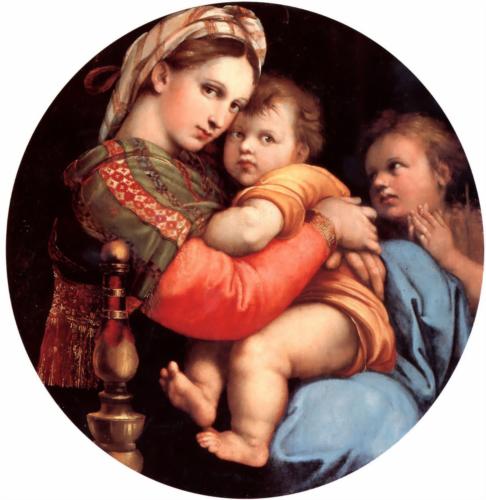
Figure 1 – Raphael’s Madonna of the Chair, 1515 – the ultimate meme. From Wikipaintings and in the public domain.
I have received some very interesting comments from readers Megan and Andrew regarding my post about the Turkish woman in red. The discussion really returns us to the view that an image is a meme. We see it and we draw connotation from it, and the connotation is culturally-based. In a western context, the dress on the woman is not the uniform of a protestor. She is an innocent caught up in a violent and violating act. And yes, the connotation would be different, although not necessarily unsympathetic if the victim was a young man in blue jeans. In other cultures, perhaps more religiously conservative ones, she might be viewed quite differently. She might be viewed as getting what she deserves. The point is that images are powerful memes and that attaching connotation to them is not only what happens but is so ingrained in our psyches as to be what must happen. The process is intrinsic to our circuitry. We are organizing our thoughts and reactions, connecting with others of our culture in defining how we will react.
And yes again, regardless of our culture, we are stereotyping. I would suggest that if memes are such an important innate aspect of human thought and culture, then stereotyping becomes innate as well. We are taught in western culture that stereotyping is bad. You learn it in preschool – “respect diversity.” In railing against stereotyping we are seeking to overpower the innate with our intellects. This is a good thing, but we always have to recognize that our initial reaction will be the innate and overcoming that first impression will be a task. In fact, I would argue that the only way to truly overcome stereotyping is to replace one meme with another.
Our concern here is about the power of image. So I hesitate to go further down this path of arguing about right and wrong and stereotyping. However, it has to be recognized that saying that stereotyping is wrong, which I believe to be true, because my mother taught me so, is paradoxical to the concept of all inclusiveness and respecting diversity. This was pointed out by Allan Bloom in his book “The Closing of the American Mind.” Traditionally, all cultures believe that they have “the truth” and as a result are superior to all other cultures. To say that we have obtained a new truth, that all cultures and their practices must be respected, so called cultural relativism, is to say that our culture has a greater truth than all others – that we are superior because of attaining this greater truth.
Also in the face of cultural relativism is that we firmly believe that certain practices are fundamentally wrong. Slavery, suppression of women or any group, child abuse are examples. We condemn those cultures that practice these. Well, so be it! What we wish for the world is a more inclusive and freer society – which calls for an evolution of culture. Whether the human race will ever achieve such utopia is under question. Will such a culture evolve out of what Joseph Campbell referred to as the mythic ruins of our modern day world or whether culture conflict will remain the norm, really remains to be seen. What we may be certain of is that we will always hold powerful images in our minds that connect us all.

Pingback: The very dark side of image as shorthand | Hati and Skoll Gallery
Pingback: Where is the Turkish woman in red now? | Hati and Skoll Gallery